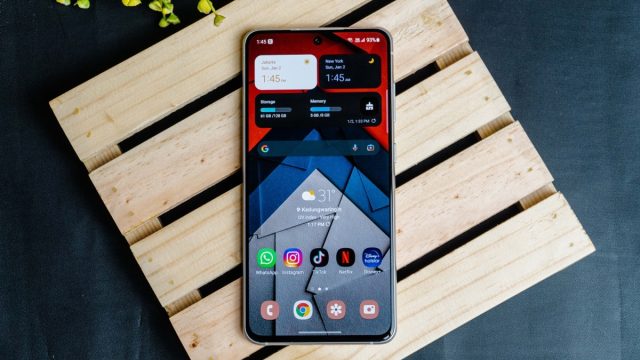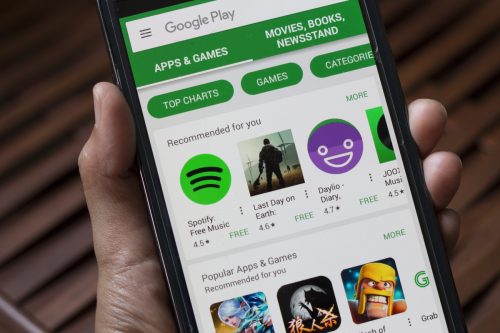If You Get This Alert on Your Android, Change Your Passwords Immediately

Protecting your online identity is no easy feat, and with hackers constantly employing new tactics to catch you off-guard, staying safe in the digital age is downright overwhelming. If you’re an Android user, you can feel confident with Google on your side, as the tech company is regularly issuing updates to help you improve your online privacy. In fact, a new alert on your phone is just one of Google’s attempts to keep your information safe. Read on to find out what pop-up warning you’ll want to act on immediately.
READ THIS NEXT: Google Just Issued Another Urgent Warning to All Android Users.
Google has dealt with different security breaches on Android phones this year.

Earlier this week, experts issued concerns about new security threats for Android users. As reported by cybersecurity firm Kaspersky on May 6, three apps in the Google Play store were found to contain Trojan-style hacker software known as “Jocker.” Apps containing this code had previously been banned by Google, but hackers found ways to get around security measures, The Sun reported. Identified apps were Blood Pressure App, Camera PDF Scanner, and Style Message, all of which can pose a financial threat if downloaded onto your phone.
Prior to this, Android phones were also being targeted by malware known as “Octo,” which prompted Google to ban dozens of apps from its Google Play marketplace on March 25. Now, the tech giant is taking additional steps to help users, this time with a revamped privacy feature.
You’ll now have an added layer of protection on your Android phone.

If you get an alert on your Android instructing you to change your password, you’ll want to heed that warning. As of May 23, Password Checkup is available on your Android. It allows users to “check their saved credentials for security vulnerabilities and provides a list of actions to improve online hygiene,” Google said in a post outlining system updates.
Put simply, Google will let you know if your password has been found in a data breach and instruct you to change it on the spot. This will happen only if you are using credentials that Google has flagged as stolen when logging into a certain account. In that case, Google Assistant will then help you change to a more secure password, according to Android Police.
RELATED: For more up-to-date information, sign up for our daily newsletter.
Here’s what you can expect when receiving a Password Checkup alert.

Having already been in use for desktop versions of the Chrome browser, Google first announced plans to roll out this feature for Chrome on Android in 2021. The feature was going to be rolled out gradually, Android Police reported, but a majority of users did not get the alert on their smartphones until earlier this month.
Prior to the addition, users were informed if their passwords were stolen, but it was a process that involved going to the site in question and changing passwords there. Now, the Google Assistant feature requires just a few quick taps to get the job done automatically.
Per a tweet from tech writer Max Weinbach, Google Assistant will appear and prompt you to change your password, giving you the option to close the window or “change automatically.” If you use two-step verification, it will also ask you to enter a code from your authenticator and then agree to terms that allow Google to “complete actions across websites” on your behalf. After setting a new password, Google will save your credentials for future logins on the site.
Make sure your Android is up-to-date in order to take advantage of this feature.

To access this helpful tool, you will need to make sure your phone has the latest version of Google Play, Play Services v22.18, which was made available on May 23. Android Police notes that not all websites will be compatible with the feature, but it can be helpful in upping your mobile security when it does work.
If you use something like a third-party app to store your passwords (or if you write them down elsewhere), you’ll want to update those lists separately in order to avoid being locked out of different accounts.
READ THIS NEXT: If You Have an Android, You’ll Be Barred From Doing This, Starting in August.